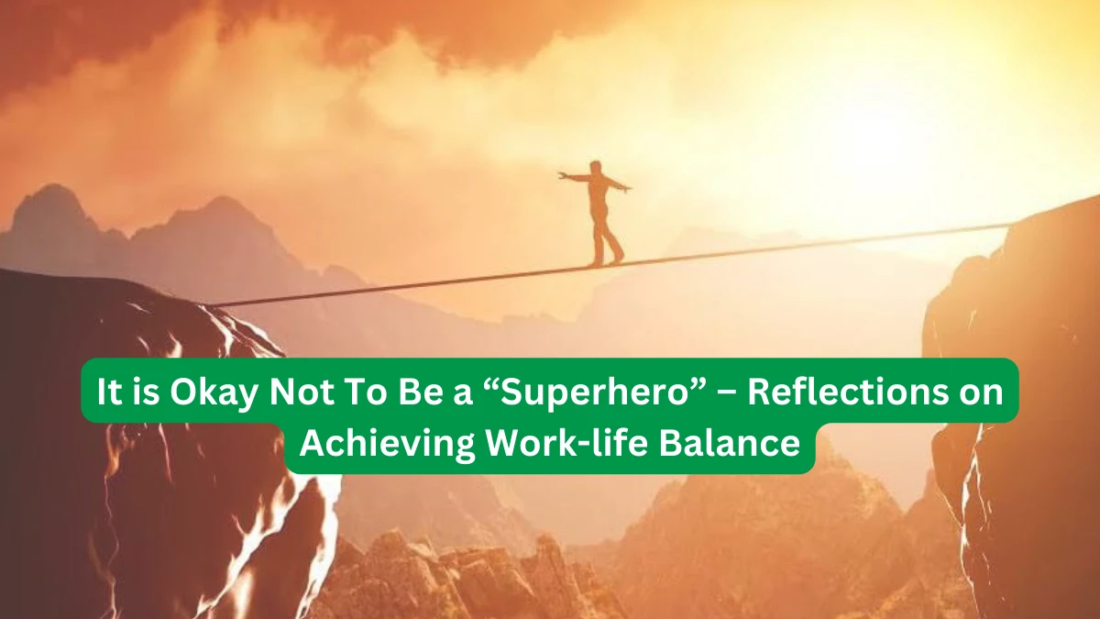On the occasion of International Women’s Day, Shwetha Sivaraman, a self-mastery coach and the presenter of Being Meraklis podcast, hosted women in their 40s and 50s to share their wisdom on navigating 30s as a working woman. Over 12 women who have aced different fields from entrepreneurship to art gathered to reflect and share insights that could help women in their 30s balance both personal and professional life.
Samriti Makkar Middha, a queer affirmative psychologist and co-founder of Equilibrio LLP, joined this important conversation as well. She shared her perspective and tips on what could make 30s easier for working women. Here are some takeaways from the stimulating discussion:
“Three Things I wish I knew in my Thirties”
Samriti dwelled upon the importance of realizing one’s worth and place vis-a-vis their professional and personal life. She broke down the much-spoken about concept of work-life balance into tiny nuggets of wisdom.
“Career is Long term”
1) “Listen to that knock on the door”:
Highlighting the importance of having foresight when it comes to building a career, Samriti exhorted her listeners to consider a few things. To listen to every metaphorical knock on the door of their professional life. Not all things might work out as a person plans, but listening to every feeble knock on the door and remaining open to take chances is a go-to principle in her book.
Exploring every opportunity to rediscover one’s forte and add to their skill sets is a very important quality in her view. Therefore, astutely assessing all career opportunities becomes a necessary tool to move forward.
2) “Overcoming Internalized Biases”:
Samriti spoke about the natural human need for familiarity, and conversely avoiding whatever is unknown. Known as the affinity bias, this tendency is very common in human beings. However, Samriti rightly stressed how organizations are increasingly looking for diverse experiences and diverse skill sets when hiring talent.
To thrive in diverse work environments, a very important process is to look at and assess any internalized biases that may come up towards any social group. Samriti reflected on her personal experience of conducting sessions with leaders where men are comfortable at the table, but she needs to gently invite the women to participate as well. In such situations, having a clear internal reflection mechanism takes one a long way.
3) “Learning to say No”:
Women often have a harder time managing their boundaries, and rejecting ideas, places or people that do not add to their wellbeing or professional value.
Exercising the right to say no becomes very important to avoid situations and people that leave one exhausted. Saying ‘no’ to toxic people, situations and ideas and patriarchy in general therefore, sits high up in Samriti’s list.
4) “Get Mentors”:
Women often need an extra leg up to feel psychologically safe in new workplaces. So Samriti delineates the need to get a mentor or a buddy. She urges women to be more proactive and enthusiastically seek out a mentor instead of waiting for their organization to assign them one.
She also points out the nuance of how men and women can have differing perspectives as mentors. On matters relating to how one should approach their career, how to become visible in an organization, access the right opportunities to climb up the career ladder. Mentors can help an employee decode what work and life balance looks like for them individually. To avail these constructive conversations, Samriti advises towards unapologetically pursuing and finding the right mentor.
“Labels Don’t Define You”
It is hard to find a woman who has not been at the receiving end of unsolicited advice, especially if they are a working woman. Women are also burdened with unwanted opinions about who they seem to be as women, mothers, daughters, employees or managers. This is where Samriti very aptly points out opinions are not facts; therefore, a woman need not let them define her.
She stresses on the importance of not allowing others to dictate how a woman should live her life. Whether it is choosing to change career paths, embracing motherhood, opting for a long-distance marriage or staying single, a woman should make these decisions on her own, aligned to her personal values.
“Putting Self Before Others”
In Indian culture, self-sacrifice is an expected trait in women. Women are expected to be natural care-takers, who will put their needs after everyone else. Samriti reflects on how this needs to be discouraged.
Women often think it selfish to prioritize themselves before others. But putting everyone first can lead to fatigue, irritability, loss of self-confidence and ultimately a loss of connect with one’s individual self.
“Self is the foundation for all the roles we play”, Samriti observes. Therefore, to preserve a balance between all aspects of her life, a woman should always take care of her own needs first.
“Two Resources That Shifted My Perspective in Life”
Reflecting on her personal journey Samriti shared how she came across the book “Lean In: Women, Work, and the Will to Lead”, by Nell Scovell and Sheryl Sandberg as she was beginning her journey of motherhood and looking at a career change. The book helped her understand the kind of work she can show up to. Work that she believes in and is passionate about.
Speaking about how complex human emotions are and how often it is hard to decode and process them, Samriti shared that the podcast by American Psychology Association is a definite resource for her. Deconstructing different emotions, the podcast brings together perspectives from different thought leaders about moving through the journey of life.
“One Tip to Thrive in the 30s”
Tipping her hat to the International Women’s Day theme for 2024 (Invest in Women: Accelerate Progress), Samriti talked about how it’s time women invest in themselves. She pointed out the different areas of life that can benefit from this habit.
Investing in known strengths: Often women are told the places they can improve. But Samriti insists, that women should further hone the skills they are already good at.
Investing in wellbeing: This could look like anything from enrolling into a gym or taking a sabbatical from work and switching off from work calls or cancelling social commitments. The idea is bolstering habits that lead to an improvement in a woman’s physical, psychological and emotional health.
Invest in constructive relationships: This is self-explanatory. Investing in relationships with people who become a guiding voice of reason and appreciation, who remind a woman of their capabilities is a given when it comes to mental well-being.
Ultimately, Samriti dwells on the need to not strive and be a superwoman. To allow the pressure of doing everything of one’s own to dissipate. And to realize that there’s no shame in accepting that a woman cannot manage everything on her own.
Samriti posits that the root of work-life harmony is choosing a career path that sparks a woman’s sense of joy and purpose. And to prop that up with a consistent investment in holistic personal wellbeing. She observes how this concept is still mired in shame and guilt. However, with conversations like this Samriti and the other women at this exhilarating podcast are striving to change the narrative.
Transcribed by Usri Basistha
 Cart is empty
Cart is empty 


